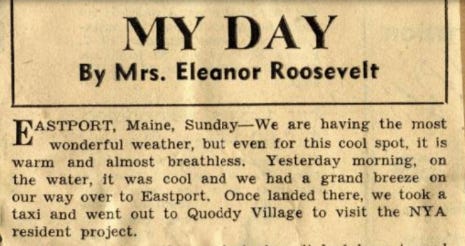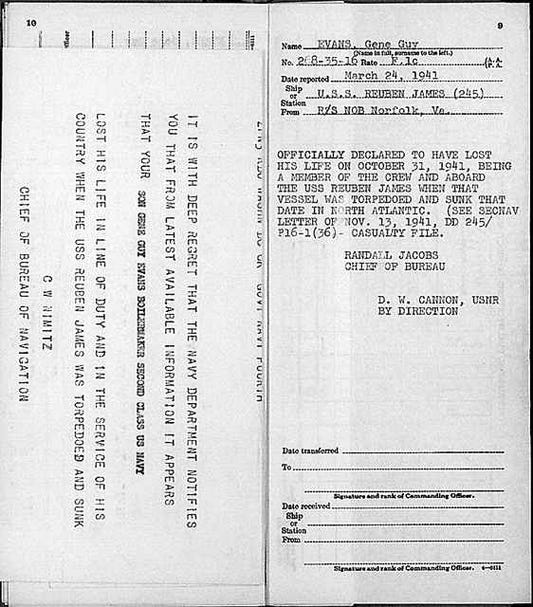In name only.
During World War II, Britain needed more than a million tons of supplies each week to maintain its war-fighting capabilities and feed its civilian population.
And even more supplies would be needed later, to prepare for the D-Day invasion and the advance of Allied troops through Nazi-occupied Europe.


These supplies came from US manufacturers.
They were transported across the Northern Atlantic in large convoys of merchant ships.
US, British and Canadian naval vessels sailed alongside these merchant ships to protect them from wolf packs of German U-boats — usually from six to ten submarines — which sailed from German naval bases on occupied France’s Atlantic coast.
The Atlantic convoys began in September 1939, with Britain’s declaration of war.
Eight weeks later, the US Navy lost its first ship, the USS Reuben James.
It was torpedoed by a German U-boat west of Iceland while escorting a convoy.
[More than 3,500 merchant ships and 175 Allied naval vessels would be lost before the war’s end.]
The attack on the Reuben James, on October 31, 1941, took the lives of 115 of 160 Reuben James crewmen.
It occurred while the US was still ‘technically’ a neutral nation, a status which President Franklin Roosevelt had reiterated when Britain entered the war.
But at the time of the attack, the Reuben James was not displaying the American flag and was dropping depth charges against a German U-boat.
It would be five weeks before the official Reuben James casualty list was released.
In the meantime, families of Reuben James sailors waited anxiously for news.
The day after the attack, First Lady Eleanor Roosevelt wrote about the Reuben James in her daily newspaper column:
“The news of the torpedoing of one of our destroyers off Iceland was the first thing that the President spoke of this morning, and that has cast a shadow over the whole day.
“I cannot help but think of every one of the 120 men and their families, who are anxiously awaiting news.
“When this is translated into terms of a specific destroyer on which your own child is serving, it makes it seem a very close and personal anxiety.
“I want to tell each family how much my thoughts are with them in these trying hours.”

And in a later column:
“My heart ached the other day when I read one of my letters which begged me to find out for a broken-hearted father whether his boy was actually on the Reuben James and among the missing because he had been on board but his name was not listed.”
The long wait for the official casualty list came from the need for officials to confirm the status of sailors receiving treatment for serious injuries and those Reuben James sailors who had been on leave at the time of the attack.
FDR said the Reuben James sinking ‘did not change any aspect of the international position of the United States.’
But the facade of neutrality, necessitated by the lingering isolationist sentiment which dominated the Congress and large swaths of the public, would be dropped two days after the release of the Reuben James casualty list, when the Japanese attack on Pearl Harbor jolted America out of its isolationist slumber.
Isolationism is no way to run a country.
******************************
I’ll see you tomorrow.
— Brenda
























Share this post